Beans from Scratch
Michelle isn't serving up samples right now, so she's serving up kitchen tips instead! Here's her tried and true approach to cooking dry beans, plus some extra tips for upping your flavor, saving time, and cook other legumes. (Ingredients and modifications are below the video.)
Ingredients
- Beans
- Water
- Salt
ONE cup of dried beans will yield THREE cups of cooked beans.
1. Pour beans onto clean cloth, plate or sheet pan and inspect for rocks or beans that are funky looking. Rinse beans.
2. Soak, soak, soak. Put the beans in a large bowl or pot, add cold water (at least 3 inches of water above the beans) and let soak overnight. Let them soak in lots of water, as it will ensure each bean has lots of water absorption. Massage the beans, rinse and refill water several times during the soak period.
3. After soaking the beans, drain and rinse and put in a large pot. Add fresh water to cover the beans 2-3 inches. The cooking vessel size is important. Bigger is better as the cooking will be more even if each bean has room to cook. Bring to boil for a few minutes. Scrape any foam off the top, as needed.
4. Cover beans, lower heat and let simmer on a gentle boil until the beans are done to the point you wish. If your pot is not deep enough, leave the lid ajar so the beans don’t get foamy and boil over.
5. At this point you can add a 3-4 inch piece of Kombu seaweed if you wish. Lift out the Kombu if it starts to break apart. Give the Kombu a taste, as you may enjoy the delicious snack that it is.
6. Stir the beans occasionally. The beans should take about 1-2 hours to be cooked through.
7. Salt the cooked beans to taste. One cup of (dried) beans to one teaspoon of salt is a good ratio.
8. If you have a lot of the cooking liquid, you can drain it from the beans and bring the liquid back to heat to reduce to a creamy consistency. You can enjoy the juice with the beans or you can use the bean cream to flavor just about any soup, braise or even pasta sauces.
Note:
- Cooking garbanzos (chickpeas) may take double the time to cook.
- Kidney beans need extra soak time, lots of rinses and longer cook times. Canned kidney beans are a good alternative.
- Lentils and split peas do not need any soak time, just a good rinse.
- If you have an Instapot, crockpot or pressure cooker, cooking beans is even easier. Follow the instructions with your appliance.
- Remember to check out the Ashland Food Co-op website for lots of fabulous tried-and-true bean recipes.
- You can add flavor components and aromatics toward the end of cooking. Beans really are better day 2 and day 3, so make plenty. Beans will keep well for about 5 days in the fridge, 3 months in the freezer.
Here are flavor profile ideas for different bean types and can be enjoyed as a cold salad, soup, stew, chili, cassoulet, entree, burger, fritter, or a creamy hummus-like dip:
Pinto: Just salt!
Black bean: Thyme, cumin seed, paprika, bay leaf, onion, garlic, bell pepper.
Black eyed peas: Thyme, black pepper, chili flakes, onion, garlic, olive oil.
White beans of all sorts: Rosemary, thyme, sage, bay leaf, parsley, celery, carrots, onion, garlic.
Garbanzo: Leave plain to make hummus or make chickpea marsala with mustard seed, cumin seed, turmeric powder, coriander, fresh ginger, cilantro, onion and garlic.
More Co-op News

Planning for Summer... and Smoke
By Emile Amarotico, General Manager
If we are lucky, we’ll only have another seven week smoke intrusion this summer. If we are not, we could be the next Paradise. In less than 13 hours, last November’s Camp Fire wiped out nearly 19,000 structures and more than 80 lives. With community help, we were able to raise over $14,000 to support Chico Natural Foods Co-op’s efforts to feed some of the nearly 20,000 displaced Paradise residents.
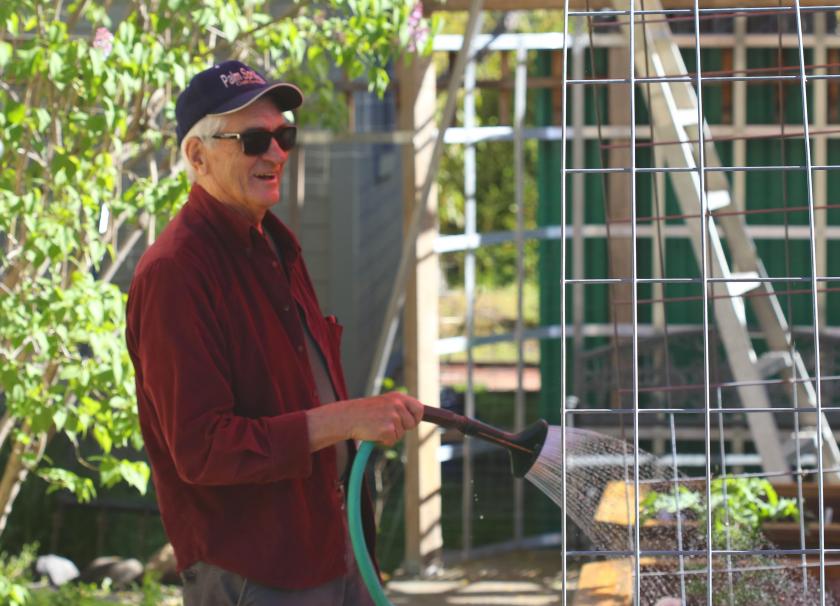
The Co-op's "Secret Garden"
Did you know the Co-op employees have a small garden on our campus? Planning and management falls on our fantastic Co-op volunteer: Henry Herting.
Below, Henry shares some background on the garden, what it’s used for, and some additional tales from over the years.
Originally, the need for a kitchen garden arose from having a kitchen classroom in which culinary classes were being held. Visiting chefs have always been invited to use the garden for any ingredients they may have forgotten or items they could use as garnish for their dishes.
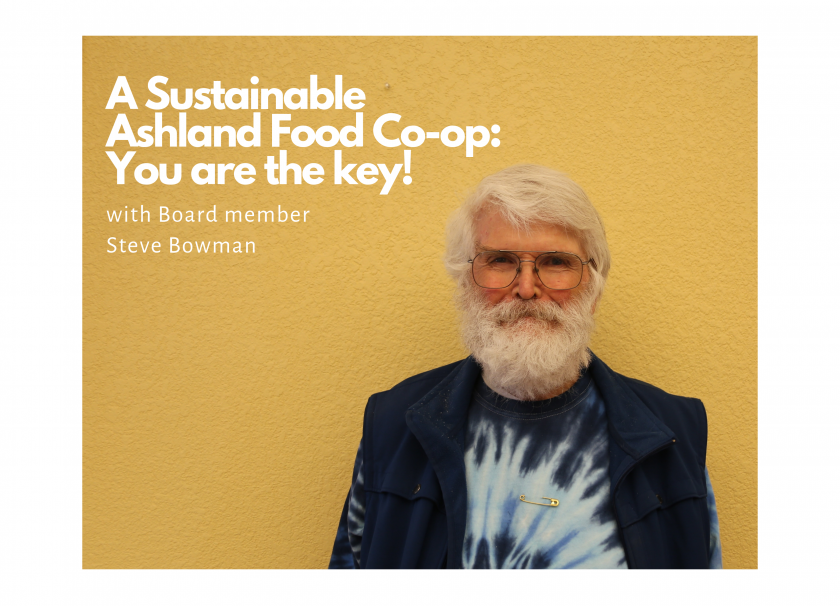
Sustainable Ashland Food Co-op: You are the key!
By Steve Bowman, AFC Board Director
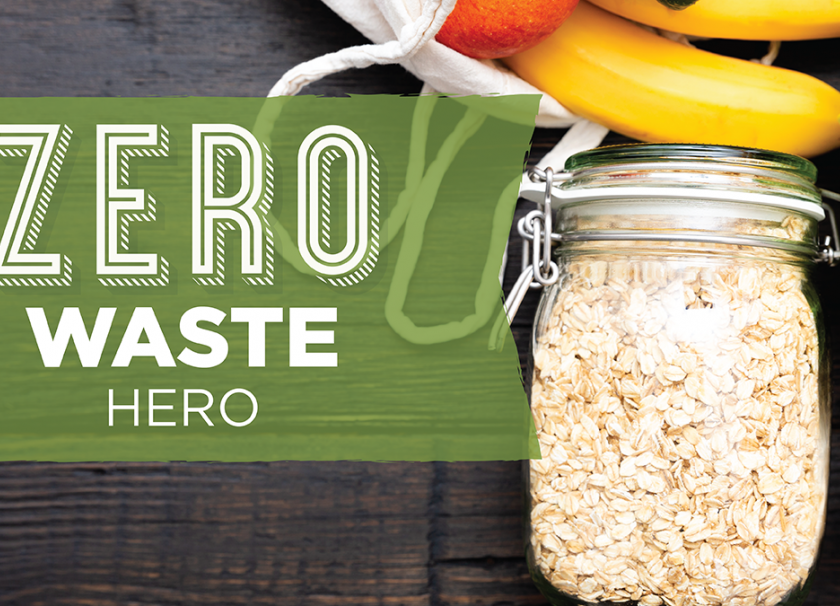
Tips for a Sustainable Kitchen
By Mahlea Rasmussen, Education Coordinator
Outside of work I spend a lot of time in the kitchen. I find it a soothing space to create nourishing meals and lasting memories. I find it essential to be as eco-friendly as possible and a few changes can transform your kitchen into a sustainable center of your home.

Earth Day Bulk Sale! April 17-21
Save money while working towards a more sustainable shopping experience! The Co-op bulk department is a great "first stop" for your grocery lists - everything from hummus mix to local honey to pet food is available. Plus there's less waste, all the way from shipping to ended up in your shopping cart.
Check out a quick tour below:

Film festival giveaway
Enter your name and email below to be entered to win two film vouchers for the 2019 Ashland Independent Film Festival.
No purchase necessary. Giveaway is not endorsed or sponsored by AIFF. US residents only. Entry will be closed at 5pm PT on Monday, April 15.

The state of plastics
Many Co-op owners and shoppers have shared their interest in reducing plastic usage in the store. From bioplastics, to compostable plastics to recycling options, the Ashland Food Co-op continues to research what works best as we move towards our goal of being a zero waste store. Here is where we stand.
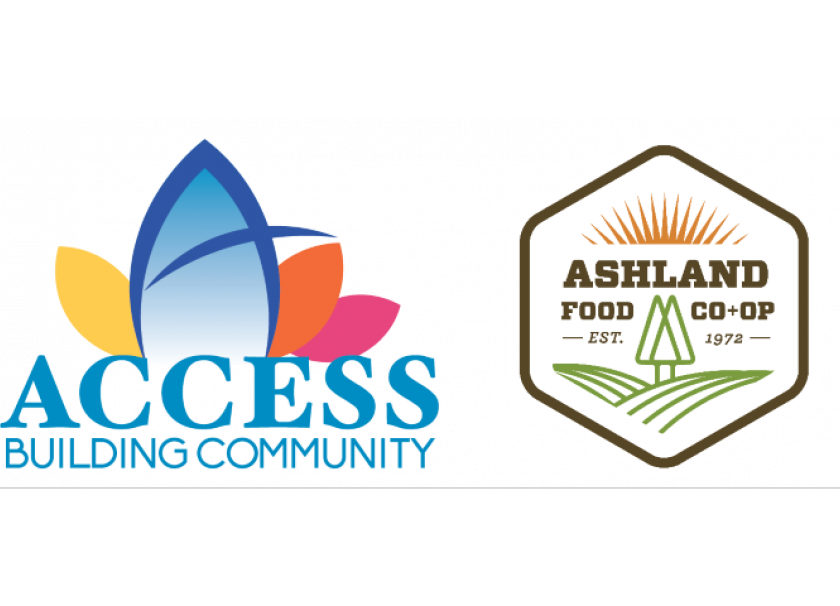
Ashland Food Co-op Celebrates 20-year Partnership with ACCESS
We are proud of a partnership with ACCESS that has benefited the community immensely over the past twenty years. Read on for more about the partnership, or watch the short video below.
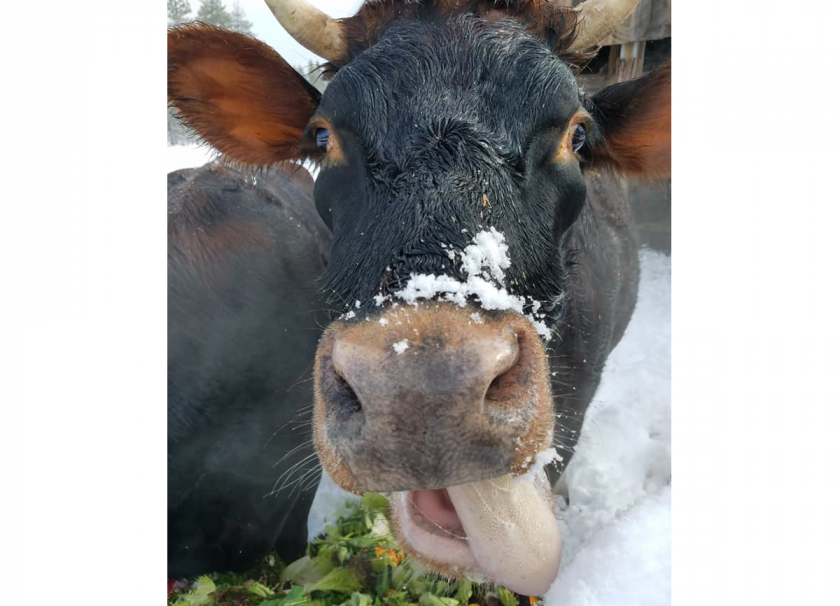
Food waste at the Co-op
By Rianna Koppel, Sustainability Coordinator
How many times in the past month have you reached back in the fridge to snack on some fresh strawberries only to discover… mold?! In the United States, 40% of food is wasted every year. Luckily, how we address food waste can have a major impact. According to Paul Hawkin’s Drawdown, reducing food waste is #3 on the list of best ways to reduce carbon dioxide emissions. At the Co-op, we use the EPA’s Food Recovery Hierarchy as a guide to bettering our own practices.

Meet Cooking Class Instructor, Gianaclis Caldwell
Get to know Gianaclis Caldwell ahead of her class, "Easy Mozzarella and Burratta - From Scratch!" on March 7. Gianaclis is the author of the award-winning book Mastering Artisan Cheesemaking and owner of Pholia Farm.
Tell us how your love of cooking (or cheese) and food began.

Wellness Secret Weapons
There are still plenty of colds and viruses making their rounds, and we want to help you better defend against them!
In January, we asked on social media what kind of secret weapons you use in the winter to stay healthy. We had a lot of responses, so we'll start with the All-Stars.
With your initial recommendations, our Wellness team reviewed the suggestions and picked the products with the highest quality standards and best feedback. Check those out below.
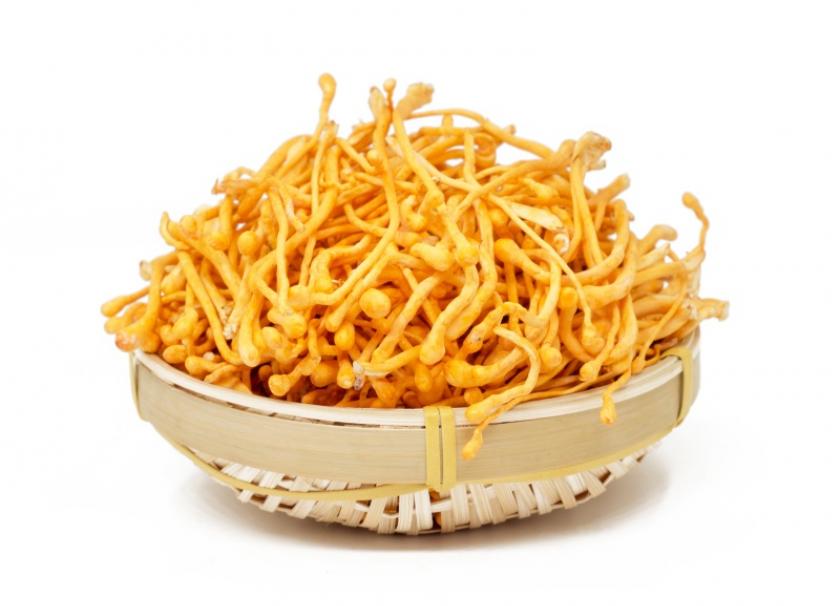
Mushrooms for wellness
You may have heard about the fascinating discovery that trees can communicate with each other. What’s the secret? The mycelia - tiny strands of fungus - in the soil form a vast underground network through which trees send chemical signals to their neighbors.
The mycelia differs from the fruiting body of the mushroom, which is the reproductive component that contains spores and is thought to be higher in Beta Glucans.

Meet class instructor, Joette Calabrese
This class instructor profile is connected to the February 27 free lecture, "You, Too, Can Beat the Flu!"
On an early Kolkata (Calcutta) morning, thick crowds gather outside the gates of the hospital while officials yell out "Brain tumor, kidney failure, cancer patients form a line here!” Hopeful patients, family members and caregivers arrange themselves by disease symptom.
What to do with all this citrus?!
So you grabbed a few too many extra oranges and grapefruits and lemons (and some finger limes, and some satsumas…), and rather than watch them go bad, we want to provide you with some ideas on how to reduce waste. You’ll also get to enjoy citrus in a lot of new ways!
There are many guides and recipes across the internet (like this one by our friends at Grow Forage Cook Ferment), so here are a few ideas to get your creative and citrus juices flowing.

Update from the General Manager: "Food for Paradise" campaign
Ashland Food Co-op's General Manager, Emile Amarotico, ends 2018 on a very uplifting note with a report back on the "Food for Paradise" donation campaign. Watch the video below, or read on for an extended written update.
Hello, this is Emile Amarotico, the general manager of Ashland Food Co-op with an update on the Co-op’s Food for Paradise initiative.
